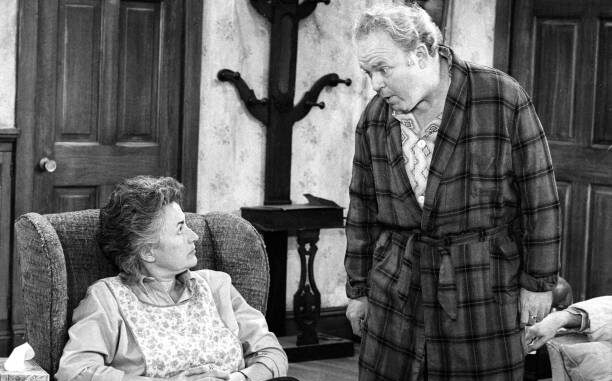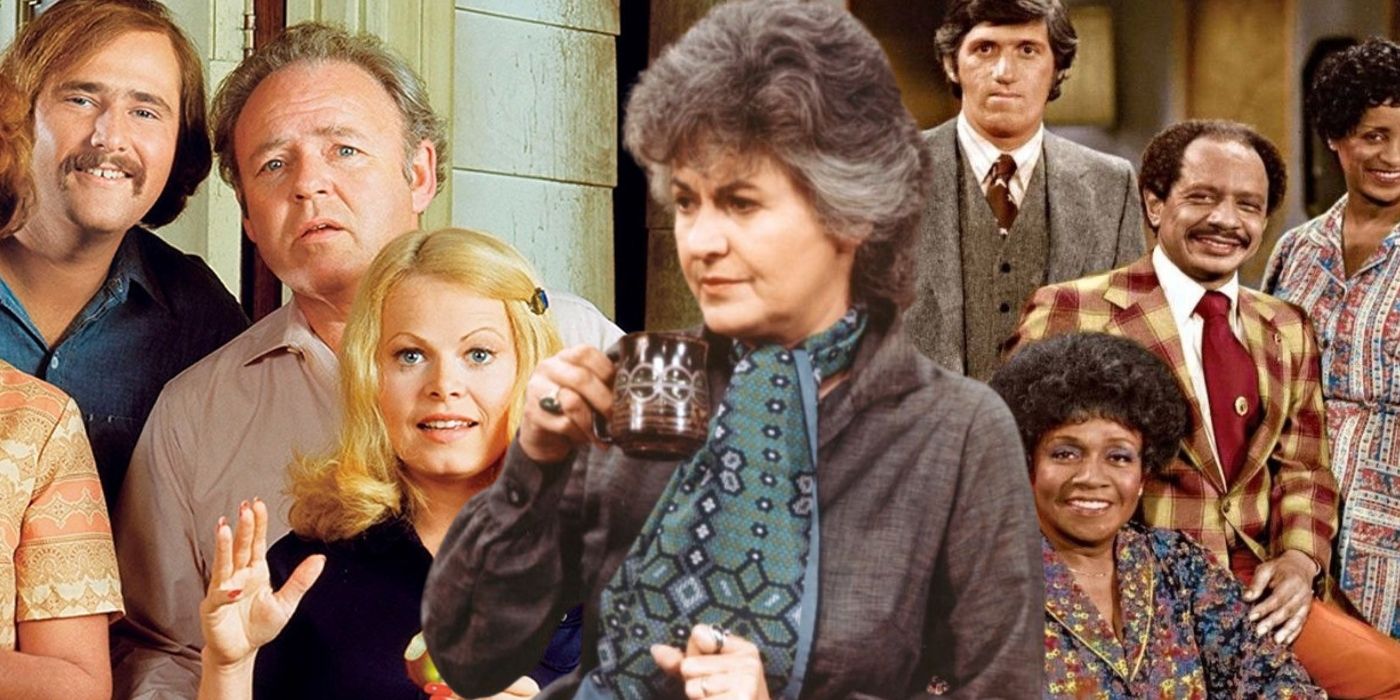
Looking Back on “All in the Family,” the Sitcom That Reshaped America
In the vibrant tapestry of American television history, few shows have made as profound an impact as “All in the Family.” Created by Norman Lear and premiering in 1971, the sitcom not only entertained but also confronted the pressing societal issues of its time, revealing deep-seated prejudices and sparking crucial conversations.
The 1960s: A Nation Divided
A Tumultuous Era
The 1960s were marked by intense societal upheaval. Events like the Vietnam War, the Civil Rights Movement, and the sexual revolution dominated headlines. The assassinations of John F. Kennedy, Martin Luther King Jr., and Malcolm X further fractured public sentiment. Yet, in stark contrast, primetime television offered a sanitized view of life, opting for lighthearted comedies like “The Beverly Hillbillies” and “The Andy Griffith Show.”
The Shift: Enter “All in the Family”
Norman Lear’s Vision
Norman Lear changed the game with “All in the Family.” The show revolved around the Bunker family, led by the blunt and bigoted Archie Bunker, portrayed masterfully by Carroll O’Connor. Unlike its predecessors, this sitcom plunged into the complex realities of American life, addressing issues such as racism, sexism, and generational conflict.
Archie Bunker: The Complex Anti-Hero
A Reflection of Society
Archie Bunker was a character unlike any other on television. His unapologetic views were a reflection of many Americans’ beliefs during the time. Each episode tackled themes such as the draft, women’s liberation, and racial tensions, allowing audiences to confront these issues in their living rooms.
The Fine Line of Satire
While Lear intended for Archie to serve as a satirical figure prompting reflection, many viewers embraced him as a relatable character. Some audiences resonated with his outdated views, interpreting them not as a cautionary tale, but as common sense.
The Show’s Cultural Impact
A Record-Breaking Phenomenon
“All in the Family” quickly became a cultural phenomenon, holding the title of America’s most-watched show for five consecutive years. This success sparked debates among media scholars about whether it ultimately challenged or perpetuated bigotry in America.
Archie as a Mirror
Despite CBS’s disclaimer that the show aimed to highlight absurdities in prejudice, Archie’s popularity suggested that many viewers found validation in his viewpoints. Historian Saul Austerlitz noted that Archie was seen not ironically, but as a relatable figure—a troubling realization for critics like Laura Z. Hobson, who argued that such portrayals could normalize harmful ideologies.
The Legacy of “All in the Family”
Influencing Future Programming
The series set the stage for other socially conscious shows like “The Golden Girls” and “Modern Family.” However, it also paved the way for programs that glorified bigotry, showcasing the dual-edged nature of its influence.
A Precursor to Contemporary Issues
Even decades after its conclusion in 1979, the show remains relevant. The spirit of Archie Bunker echoes in today’s political landscape, as polarized views find platforms where previously hidden biases are now openly expressed.
Conclusion: A Double-Edged Sword
“All in the Family” reshaped American television by addressing real societal problems, yet it simultaneously created space for bigoted views to thrive. The legacy of Archie Bunker serves as a reminder of the power of television—both to challenge and to reinforce societal norms. As we reflect on this iconic show, we must consider the complex interplay between entertainment and societal values, understanding that while humor can illuminate, it can also obscure.
FAQs
1. What societal issues did “All in the Family” address?
The show tackled racism, sexism, generational conflict, and other pressing social issues of the time.
2. How did audiences perceive Archie Bunker?
Many viewers related to Archie’s views, interpreting him as a common-sense character rather than a satirical figure.
3. What impact did “All in the Family” have on television?
The show opened the door for more socially conscious programming while also normalizing certain bigoted attitudes.
4. Why is “All in the Family” still relevant today?
The themes of the show resonate with current societal issues, reflecting ongoing political and cultural divides.
5. What was Norman Lear’s intention with the character of Archie Bunker?
Lear aimed to provoke introspection in conservative America by highlighting the absurdity of prejudice through humor.
